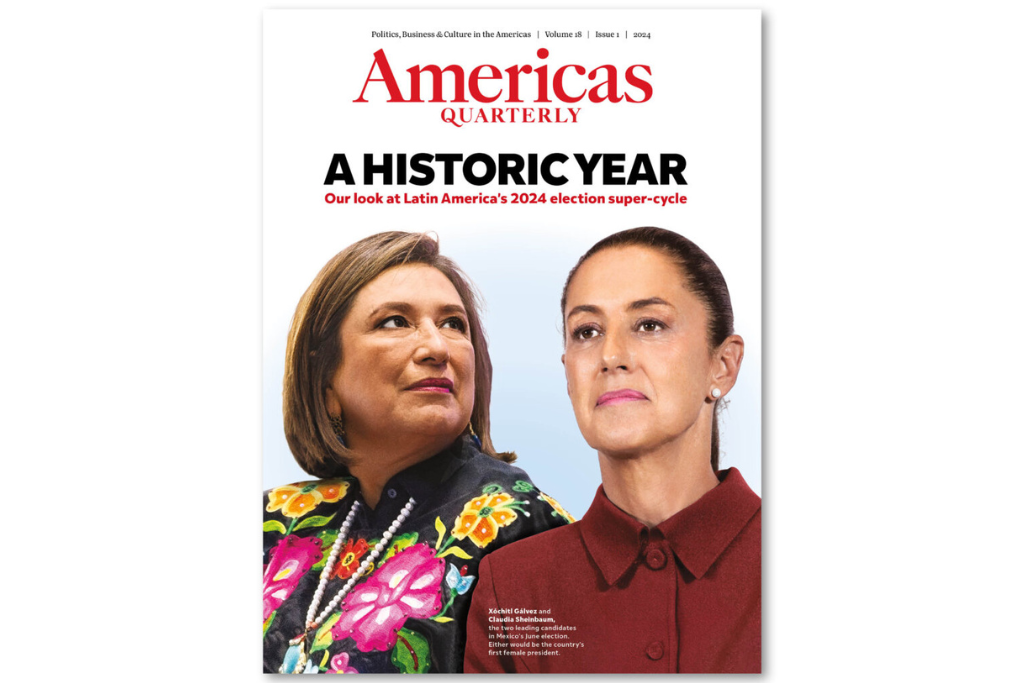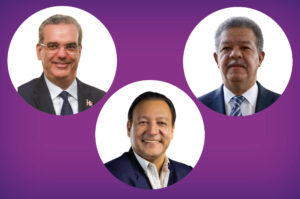This article is adapted from AQ’s special report on Latin America’s election super-cycle
2024 will be the biggest election year in history, with some 4 billion people, or about half the planet’s population, set to cast a ballot. In Latin America, the so-called super-cycle will see at least five presidential elections—enough to highlight several interesting and, in some cases, encouraging trends.
As our cover suggests, Mexico seems certain to elect its first female president in 2024. In recent years the country has become a world leader in gender equality in politics, with women now holding half the seats in Congress and also leading the Supreme Court and foreign ministry. It doesn’t seem like a coincidence that Mexicans’ satisfaction with democracy has doubled since 2018, according to pollster Latinobarómetro. That’s largely due to President Andrés Manuel López Obrador’s popularity, but more Mexicans may also feel their leaders share their life experience and policy priorities. It’s a formula other countries could emulate.
Elsewhere, the picture is more mixed, as Tamara Taraciuk Broner notes in her essay for this issue. El Salvador’s President Nayib Bukele is expected to win a second term, even though his country’s Constitution forbids reelection. In Panama, the frontrunner is former President Ricardo Martinelli, who has been convicted on money laundering charges. Venezuela is scheduled to stage a vote in 2024, though the dictatorship has yet to commit to a date and almost no one expects voting to be free or fair. On the other end of the spectrum, Uruguay will hold an election that should reinforce its role as one of the world’s strongest democracies. The Dominican Republic may also reelect its popular incumbent.
Where does that leave us? Recent years have seen democracies all over the region, and the world, come under stress—but find a way to resist, as Brazil, Guatemala and Peru did in 2023. There are no guarantees 2024 will have similarly positive outcomes. But efforts to ensure politicians resemble their constituencies as much as possible are not a bad start.












